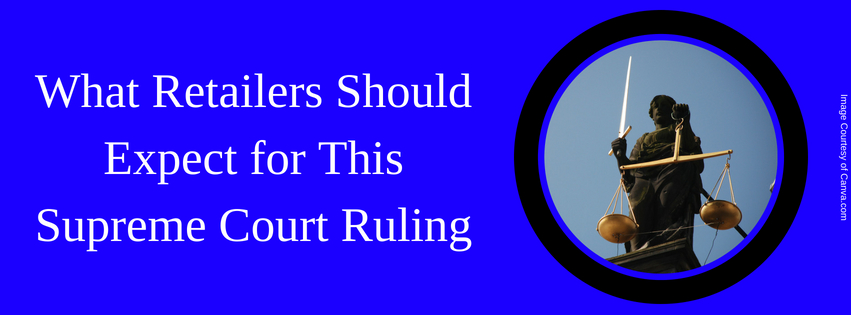Earlier in April we presented the case of South Dakota v. Wayfair in this article – a key trial that could change the law regarding sales taxes based off of the Supreme Court’s decision – and with over $13.4 billion in state revenue could have been collected from sales taxes within 2017 alone, hanging in the balance, everyone has been eagerly waiting to see what the ruling might be.
Well, as of June 21st, the Supreme Court has announced its decision in favor of South Dakota, thereby granting the state permission to levy sales taxes on out-of-state sellers.
For a lot of people, this ruling is sure to change the landscape for sales taxes nationwide, while retailers need to prepare themselves for the new wave of requirements about to hit them.
What South Dakota’s Win Means
Many states beyond simply South Dakota were eager for a ruling in favor of the challenging state – in fact, several had even gone as far as to create similar sales tax laws in anticipation of the decision, and it’s easy to see why.
Now that South Dakota has won, the Supreme Court has essentially claimed that the law as it stands is enough cause for states to charge out-of-state sellers sales tax, as well as online retailers who don’t have “a physical presence” within that state. For state governments, this change will bring a windfall of new revenue, while online retailers will be tasked with the challenge of updating all their systems to collect and document sales tax from each of their customers in an efficient manner.
Congress’ involvement is another eventual possibility and, should that happen, Congress could either vote to strengthen the Supreme Court’s decision allowing states to levy sales taxes, or override it altogether with federal law.
The Next Step for Retailers
Regardless of which state your business resides in, sales tax collection for out-of-state and online retailers is almost certain to affect you sooner or later, and as such sellers should be prepared.
For those who wish to stay ahead of the times, operate according to the law, and prevent future headaches with hours of payable labor trying to sort everything out at once, it’s recommended that businesses establish an automated system that can calculate and record sales tax now.
As Scott Peterson, the VP of U.S. Tax Policy and Government Relations for Avalara, says in this article, “online retailers that want to face the future with confidence – and ensure their ability to focus on satisfying the needs of customers – should immediately develop a reliable strategy for tracking evolving sales tax regulations, assessing their impact on their businesses, and automating sales tax compliance.”
